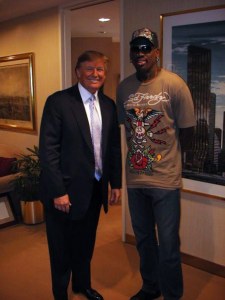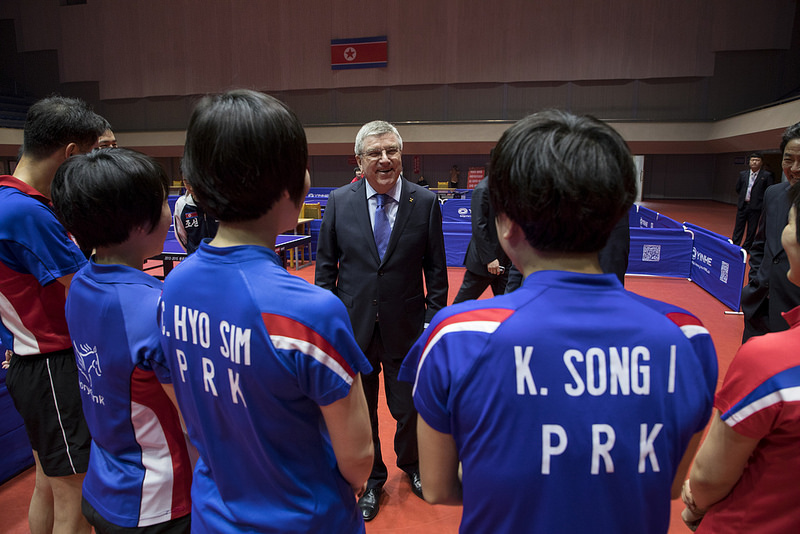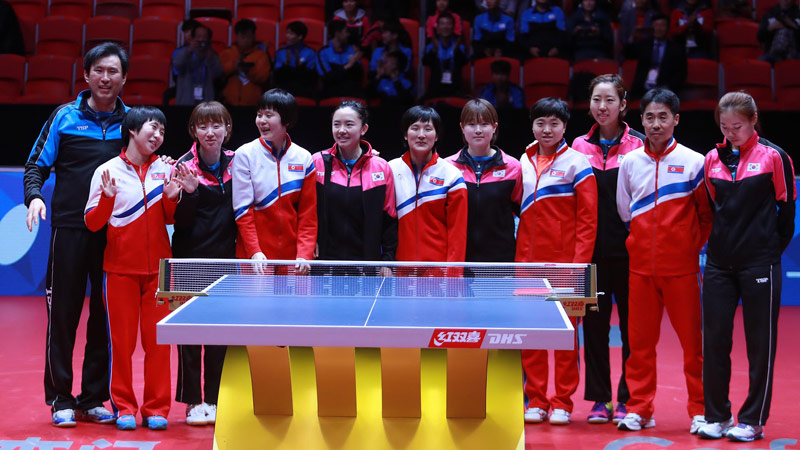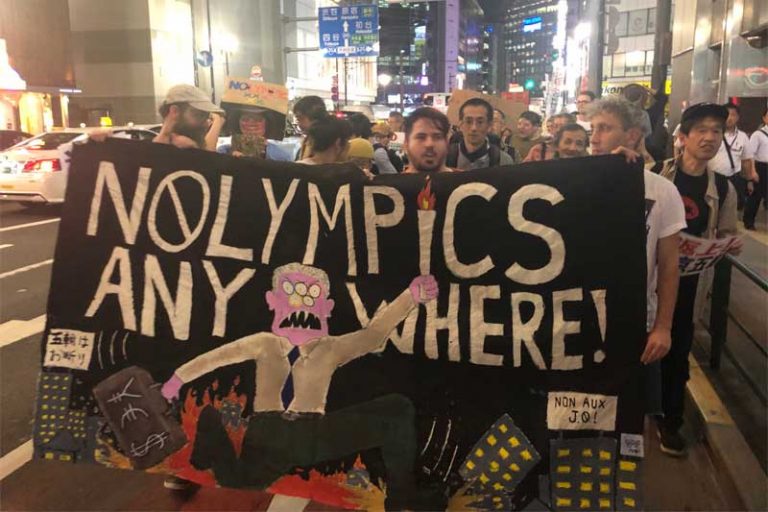
BidWeek, Reporting From Toronto, Canada – After news last week that at an historic summit North Korean leader Kim Jong-un and his counterpart in the South Moon Jae-in road-mapped a plan for peace on the Korean Peninsula, debate on who should take credit quickly followed.
Granted, the deal is far from complete and such agreements have been made, in principle, many times in the past – and never executed. But the rapid thaw from the inflamed rhetoric of late last year to the sudden fresh new demeanor of Kim since January has given renewed hope that the end of the decades-long Korean War is near.
I’ve had many conversations with friends and colleagues in the past week while trying to trace the path to the current situation, and they typically come down to the question, ‘who will be awarded the inevitable Nobel Peace Prize should the deal stick?’
U.S. President Donald Trump’s name usually comes up first, connecting his loose-cannon Twitter-fueled banter that got the conversation moving. Of course Kim and Moon are likely candidates too for having the courage to ignore old failures to instead forge a new path.
And yes, even NBA basketball star Dennis Rodman deserves some credit, as he himself indicated in an interview this week, for his ‘basketball diplomacy’ tactics last year when he visited fanboy Kim and reportedly gave him a copy of Trump’s book “Art of the Deal” – to help the North Korean leader “understand” the U.S. President.

Indeed, all of the above played a part in creating the circumstances for the stunning declaration made at April’s Summit.
But it would be impossible to have the conversation and ignore the involvement of the Olympics and the PyeongChang 2018 Olympic Winter Games, helping set the stage for Peace. Even if merely symbolic, the Games provided a platform for the easing of tensions and the start of meaningful dialogue, and it cannot be ignored.
PyeongChang won its bid to host the 2018 Games on a third attempt after failing to win the 2010 and 2014 editions. Both previous bids were developed around the narrative of a chance to use the Games to push for Peace in Korea. The 2018 bid strategically dropped the ‘peace’ element of its sales pitch because, well, it had already failed twice – so “New Horizons” became the new mantra.
In 2003 Kim Jin-sun, Governor of PyeongChang’s Gangwon province – the only one to straddle the border between North and South Korea – said “I am confident that PyeongChang’s winning will surely result in the formation of a single inter-Korean sports team for the 2010 Winter Olympics.”
In 2006 the same Governor told me, while Chair of the 2014 bid “we have been trying to hold various inter-Korean sports exchanges to help ease the tension between the South and North. I think holding joint sports events is the best way to improve relations and bring peace to the Korean Peninsula.”
Be assured, this focus on the potential for peace was never questioned, never doubted, and remained paramount throughout PyeongChang’s three bids and the organization and staging of the Games.
The Women’s unified ice hockey team at the Games became the manifestation of this dream. The 200 member larger-than-life North Korean cheer squad seemed like a way to exhibit some culture, and a mutual love of sport, to the world.
Be assured, this focus on the potential for peace was never questioned, never doubted, and remained paramount throughout PyeongChang’s three bids and the organization and staging of the Games.
The joint entrance of the two Koreas under the single unified flag at the Opening Ceremony, and under the watchful eye of Kim’s sister Kim Yo-jong – seated among Moon and U.S. Vice President Mike Pence – was the culmination of 20-years of work.
The International Olympic Committee (IOC) has, for years, tried to foster the development of international sport participation in nations that needed a boost.
The IOC continues its efforts, post-PyeongChang 2018, to keep the momentum going – and is committed to helping North Korean athletes earn qualifications for the Tokyo 2020 Summer Games. Through the Olympic Solidarity program (and within the rules of the United Nations sanctions) the IOC has funded a North Korean team to attend the World Table Tennis Championships in Sweden this week.
On Thursday members of the North Korea and South Korea Table Tennis teams who were headed into a quarter-final match against each other showed that they were inspired by their national leaders’ declaration last week, and by the recent Olympic Games. Instead of facing each other, they requested to continue competing as a unified team at Friday’s semi-final match. The International Table Tennis Federation (ITTF) agreed.
“This is an important statement to promote peace between our countries through table tennis,” Ryu Seunmin, South Korean IOC member and Table Tennis Olympic Champion, said as the events unfolded.
In an Op Ed published by several media channels last week IOC President Thomas Bach said “Cynics may decry these decisions [to have both Koreas march in unity at the Opening Ceremony] as naïve. If such naivete can now lead to peace negotiations on 27 April, then I am happy to be labelled naïve.”

“Other critics may say this was just political propaganda. To them I say, if these Olympic decisions contribute to peace negotiations, I welcome even more of it.”
Bach then paraphrased Kim’s sentiments told to him when the two met in Pyongyang March 30. He quoted Kim as saying “the once frozen north-south relations greeted a dramatic thawing season with the Olympics as a momentum and it was totally attributable to the efforts of the IOC which offered an opportunity and paved a path for it.”
Kim himself must have seen the opportunity offered by the Olympics when, as part of a New Years’ day speech to his nation he committed to sending a team to the Games that were to be held in February. He even went as far as wishing the South Korean’s luck with the event. Just weeks earlier, increased tensions on the peninsula and the continued arms testing by Kim’s regime had many Olympic teams reconsidering plans to attend, and the media asking if there was a plan ‘b’ in case the event had to be moved.
Nobody knows what makes Kim Jong-un tick, or what motivates him. But his love of basketball, Dennis Rodman and sport, though obscure, cannot be dismissed as a factor in recent developments on the Korean peninsula. Even if it was just to create an opening, and then leaving it up to the World’s leaders to work out the details – its hard to deny that sport has the power to unite.
When you meet a well-matched opponent on a playing field, you soon realize – we are all a lot alike.
So should the IOC, or even Bach win the Nobel Prize? I don’t think so – sport is not in the Peace-making business.

But sport can do a whole lot more. Whether its to engage youth for better health and education; create hopes or dreams when all may otherwise seem lost; unite a city or country by creating a single goal or to simply create worthy heroes – the Olympics can help.
So much more than the two-weeks of sport twice each quadrennial, the Games also create a common ground all year round. It’s up to others to leverage that opportunity.
Sure, you can say that it’s merely coincidental that Kim’s sudden, unexpected and unexplained change-of-heart occurred just as PyeongChang’s 20-year dream culminated. You may even be right. But would it matter?
Oh, and why not? I’m sure the Nobel Peace Prize medal would look great with Rodman’s five NBA championship rings.


